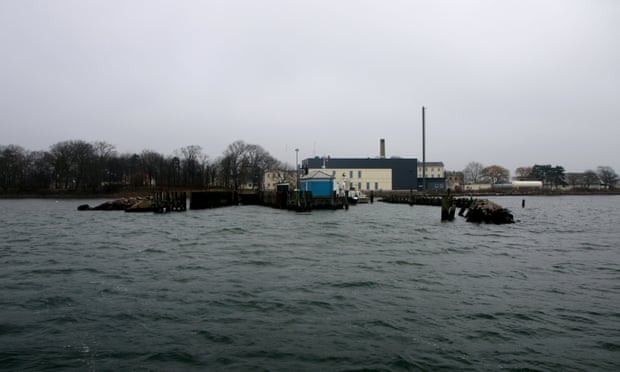Parliament passes scheme affecting 100 criminals who cannot be deported
The Danish parliament has approved funding for a plan to hold foreign criminals on a tiny island, despite criticism from the UN and local opposition.
With Denmark taking an increasingly tough stance on immigration, the government wants to send up to 100 people who have completed jail sentences but cannot be deported because they are at risk of torture or execution in their home countries to the island of Lindholm.
Funding for the scheme was included in the 2019 Danish budget, which lawmakers voted through on Thursday. A centre for people convicted of crimes ranging from murder and rape to less serious offences is to be established in 2021 and will cost 759m krone (£92m).
Lindholm is used as a laboratory and crematorium by scientists researching swine flu, rabies and other contagious diseases. One ferry serving the three-hectare (seven-acre) island south-west of Copenhagen is named Virus.
The plan has aroused opposition in the municipality of Vordingborg, of which Lindholm is part. “People think this is not the solution to the real problems,” the Vordingborg mayor, Mikael Smed, said before the parliamentary vote.
The UN human rights chief, Michelle Bachelet, expressed serious concerns about the idea on Wednesday.
A majority of foreign criminals whose deportations cannot be carried out are detained at a centre in Jutland, western Denmark. Residents there say they feel unsafe, though police report that crime has not risen in the area in recent years.
Residents of Kalvehave, from where the ferry to Lindholm departs, fear for the future of their town, which depends on tourism. “This won’t benefit the area and it won’t attract more tourists. Quite the opposite,” said Klaus, 47, the owner of a hotdog stand in the town, which is home to 632 people.
Under the plan, the criminals can leave the island during the day but will have to report their whereabouts to authorities and return at night.
Denmark has struggled for decades with how to integrate immigrants, the overwhelming majority of whom are law-abiding, into its welfare state. Public debate intensified in 2015 with the arrival of large groups of asylum seekers from conflicts in the Middle East and elsewhere.

